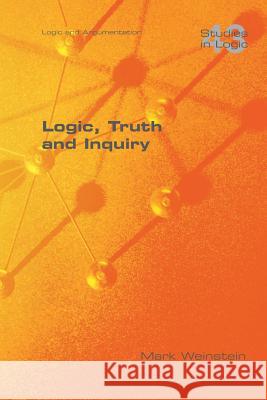Logic, Truth and Inquiry » książka
Logic, Truth and Inquiry
ISBN-13: 9781848901001 / Angielski / Miękka / 2013 / 242 str.
The logic of inquiry requires a renegotiation of truth, a concept of truth that emerges as inquiry progresses. The model of emerging truth (MET) attempts to capture this in a metamathematical construction, drawing upon the structure of physical chemistry as a paradigm of successful inquiry. The MET yields a hierarchical theory of warrant strength relevant to both formal and informal logic. The book situates the MET within the context of argumentation theory, informal logic and critical thinking. It contrasts the naturalistic approach of a science-based account of logic and epistemology with the work of Harvey Siegel, James Freeman and Robert Pinto. It draws upon Stephen Toulmin's notion of warrant, a core insight of Rudolf Carnap and a suggestion by David Hitchcock. The application of the MET to the theory of argument reflects both the concerns of informal logicians and recent work in adaptive logic by Christian Strasser and Dunja Seselja. It refl ects Hilary Putnam's notion of internal realism in support of a naturalistic ontology as the basis for the truth predicate defined in the MET and supports a shift in argumentation theory from dialectics to epistemology."
The logic of inquiry requires a renegotiation of truth, a concept of truth that emerges as inquiry progresses. The model of emerging truth (MET) attempts to capture this in a metamathematical construction, drawing upon the structure ofphysical chemistry as a paradigm of successful inquiry. The MET yields a hierarchical theory of warrant strength relevant to both formal and informal logic.The book situates the MET within the context of argumentation theory, informal logic and critical thinking. It contrasts the naturalistic approach of a science-based account of logic and epistemology with the work of HarveySiegel, James Freeman and Robert Pinto. It draws upon Stephen Toulmins notion of warrant, a core insight of Rudolf Carnap and a suggestion by David Hitchcock. The application of the MET to the theory of argument reflects both the concerns of informal logicians andrecent work in adaptive logic by Christian Straßer and Dunja Seselja. It refl ects Hilary Putnams notion of internal realism in support of a naturalistic ontology as the basis for the truth predicate defined in the MET and supportsa shift in argumentation theory from dialectics to epistemology.











